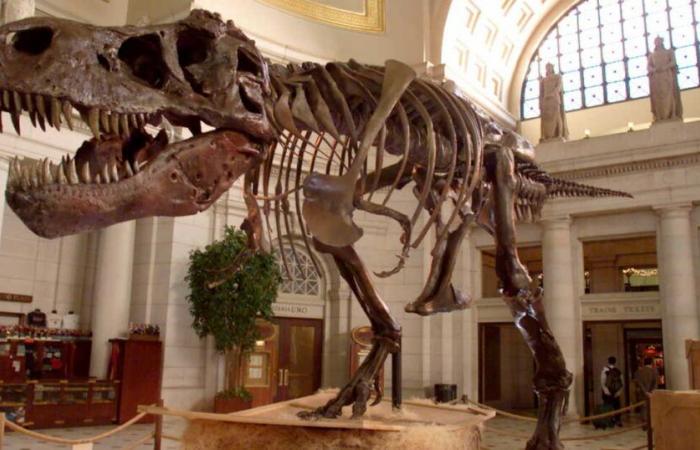Pollution of the soil and water, deforestation, the environmental impact of the leather industry is catastrophic, in particular due to the use of harmful chemicals for tanning. To reduce the ecological impact of leather production, and put an end to animal abuse, the Creative Society VML, the innovators in genomics The Organoid Company and the Sustainable Biotechnology Society Lab-Grown Leather allied to develop the leading dinosaur leather in the world. And not any dinosaur, it is the most emblematic of them: the T-Rex.
“A biomaterial inspired by prehistoric biology”
Despite what cinema has tried to make us believe for 30 years and the release of the first Jurassic Park, there is no mysterious island housing specimens of dinosaurs. But as in a Hollywood film, Lab-Grown Leather will indeed use Tyrannosaurus to create this ecological and fully biodegradable leather.
“This project illustrates remarkably how we can use cutting -edge technologies in genome and proteins to create entirely new materials. By reconstructing and optimizing old protein sequences, we can design T. rex leather, a biomaterial inspired by prehistoric biology, and clone it in a tailor -made cell line”explains Thomas Mitchell, CEO of The Organoid Company, quoted in Interesting Engineering.
-Fossilized dinosaur collagen
To create this T-Rex leather, scientists use fossilized dinosaur collagen. Matrix from which they will generate a complete sequence of collagen to cultivate new skin. This collagen sequence will then be translated into DNA and introduced into the leather cells cultivated in the laboratory. The result, announced on Instagram, will undoubtedly be confusing.
“The successful implementation of this process should produce a dense collagen structure, similar to the dermal layer of animal skin, which remains after tanning. In case of success, a material similar to leather will be produced from the old DNA of the T-Rex”details ie.
A positioning in the luxury sector
“With T-Rex leather, we are exploiting the biology of the past to create the luxury materials of the future. This revolutionary collaboration represents the crossing between creative innovation and advanced biotechnology”Enthuses Bas Korsten, World Director of Creation, Innovation and EMEA Commercial Director at VML. The group announced the release of a first luxury accessory at the end of 2025, but this new biodegradable, sustainable and not tested animal material could have other applications, with expansion opportunities in sectors beyond fashion, such as the automotive industry.






